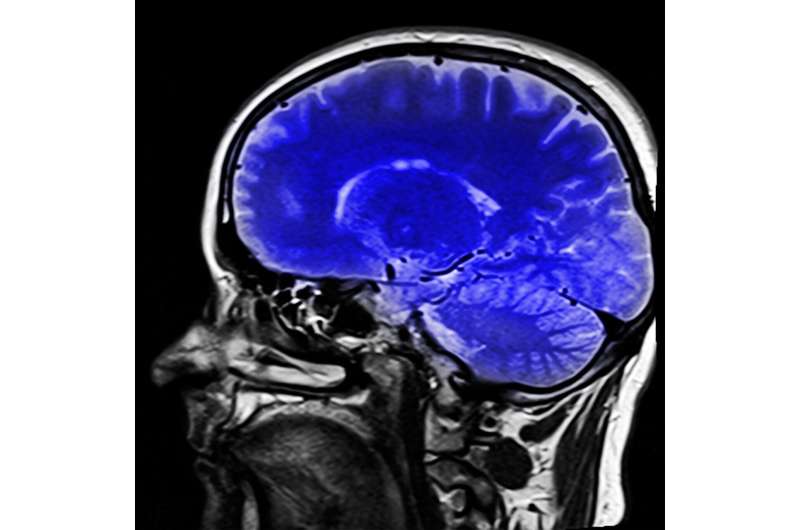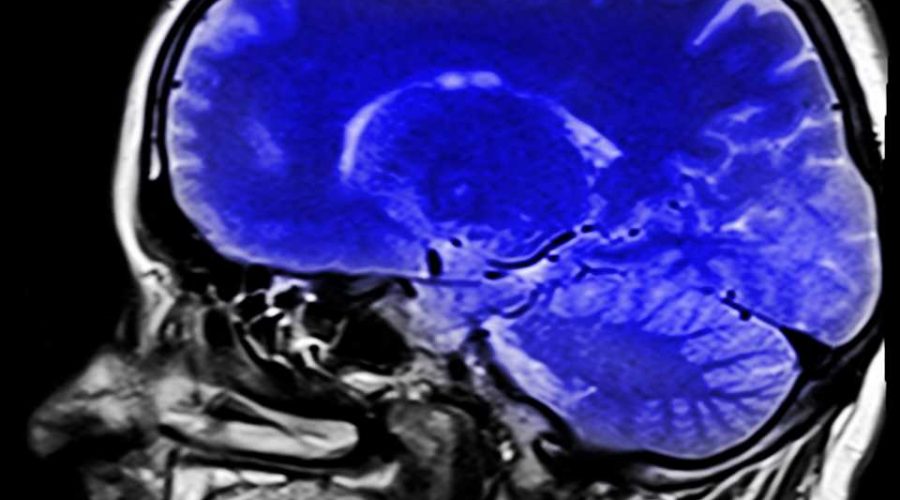Scientists discover neurons that act as brain ‘glue’ to recall memories

Scientists have discovered new insights into how our brain stores episodic memories—a type of long-term, conscious memory of a previous experience—that could be critical to the development of new neuroprosthetic devices to help patients with memory problems, like Alzheimer’s disease and dementia.
The new study—led by the University of Glasgow, in collaboration with the University of Birmingham and University of Erlangen—used special electrodes, implanted directly into the brains of epilepsy patients requiring surgery, to allow scientists to observe the activity of individual neurons in the hippocampus region of the brain.
The hippocampus is a challenging area to study, due to its location deep within the brain, yet this area is critical for our memory, acting as the librarian to the memory library in our brain.
During everyday life, the hippocampus helps our brain take snapshots of experiences, to store them for later use, by housing neurons that hold a record of what happened when and where. Like a librarian, the hippocampus directs us to where memories are stored in the brain’s neocortex, akin to guiding us to the right bookshelf without knowing the book’s content.
When we learn something new, the information is first processed in the neocortex and then linked to specific groups of neurons in the hippocampus, before forming what’s called a neural assembly that represents a memory.
In this study, scheduled for publication in Nature Human Behaviour and currently available on the bioRxiv preprint server, led by Dr. Luca Kolibius, patients were asked to form memories of pairs or triplets of images. Images were composed of animals, faces of famous people and popular places (e.g., a seagull paired with Brad Pitt and the Taj Mahal). Patients used stories to link the different images to form one coherent memory and were later asked to recall the images when being presented with one image (e.g., a seagull).
The research team, led by Professor Simon Hanslmayr, analyzed the firing rates of neurons during the memory formation and retrieval stage, and identified neurons that increased their firing rates for individual events during memory formation and recall. These neurons—which they called Episode Specific Neurons—appear to reactivate this neural assembly when we recall a memory, triggering the rest of the assembly and rekindling the memory in full.
The researchers believe the neurons discovered in this study represent the “glue” that will keep a record of all the elements of an episodic memory together, i.e., what happened where and when, and therefore has potential to inform the development of neural prosthesis to help treat memory problems in patients. For instance, a device could be developed that stimulates these neurons during memory retrieval to aid recall of memories.
Professor Hanslmayr, University of Glasgow, said, “We are incredibly excited by our findings because neurons that behave in such a way have been speculated to exist in the human hippocampus for a long time, but this is the first time we actually observed such neurons. Our next step will be to test whether stimulation of these neurons can trigger the recall of memories, which would demonstrate causality. Thereby, this research could lead to the development of devices which can help with those suffering memory-related health conditions.”
Dr. Kolibius says, “The neurons we discovered are, in essence, acting as our brain’s memory guide, helping us access and retrieve our cherished memories, like a librarian leading us to the right book on the shelf; so, to discover more about how they work is both exciting and important.”
More information:
L. D. Kolibius et al, Hippocampal neurons code individual episodic memories in humans, Nature Human Behaviour (2023). www.nature.com/articles/s41562-023-01706-6. on bioRxiv: DOI: 10.1101/2021.06.28.450149
Journal information:
bioRxiv
,
Nature Human Behaviour
Source: Read Full Article
